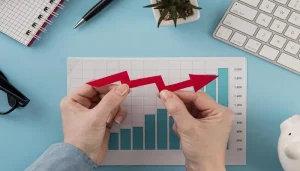Commodity market investing offers a unique opportunity to tap into global trends and diversify your portfolio. Whether you’re looking to hedge against inflation, profit from price fluctuations, or simply explore new assets, this market provides plenty of options.
In South Africa, the commodity market plays a key role in the economy, especially when it comes to precious metals like gold and platinum. With the right strategies, you can make the most of these resources, turning market movements into profitable ventures.
If you’re ready to explore how to navigate the commodity market and boost your investment game, keep reading for tips and insights that can help you make smarter, more informed decisions.
Understanding the Commodity Market
Before delving into the strategies, it’s important to first understand what the commodity market is and how it operates. Commodities are raw materials or primary agricultural products that can be bought and sold, such as oil, gold, copper, and wheat.
These markets are essential for global trade and are influenced by various factors, including weather conditions, geopolitical events, and changes in supply and demand.
In South Africa, certain commodities like gold, platinum, and coal play a significant role in the economy, making the commodity market an important aspect of local investment opportunities. By investing in commodities, South African investors can gain exposure to global market trends while taking advantage of the country’s rich resource base.
Key Strategies for Investing in the Commodity Market
There are several strategies that investors can use to maximize their returns in the commodity market. Each strategy comes with its own set of risks and rewards, so it is essential to choose one that aligns with your financial goals and risk tolerance.
1. Direct Investment in Physical Commodities
One of the most straightforward ways to invest in the commodity market is through direct investment in physical commodities. This involves purchasing actual commodities, such as gold bars or barrels of oil, and holding them as part of your portfolio.
In South Africa, investors can buy gold coins or precious metals through various dealers, taking advantage of the country’s status as one of the world’s largest gold producers.
While this strategy offers the potential for significant returns, especially in times of economic uncertainty or inflation, it comes with challenges. Storing physical commodities securely can be costly, and there is also the risk of price volatility. However, many investors prefer this method for its simplicity and the ability to hold tangible assets.
2. Commodity Futures and Options
Another common strategy in the commodity market is trading commodity futures and options. Futures contracts allow investors to agree to buy or sell a commodity at a predetermined price at a future date. Options, on the other hand, give investors the right (but not the obligation) to buy or sell a commodity at a specified price within a certain timeframe.
For South African investors, commodity futures and options provide an efficient way to speculate on commodity prices without having to physically own the commodity. These financial instruments are highly liquid, allowing investors to enter and exit positions quickly. However, they also carry a high level of risk, as leverage can amplify both potential gains and losses.
3. Commodity ETFs (Exchange-Traded Funds)
For those who want exposure to the commodity market without directly purchasing physical commodities or engaging in futures trading, commodity ETFs are an excellent alternative. ETFs are investment funds that trade on stock exchanges, much like stocks, and track the price movements of specific commodities or commodity indices.
Commodity ETFs are an ideal choice for South African investors who want to gain exposure to a diversified group of commodities, such as a basket of precious metals or energy resources, without the complexity of managing individual assets. These funds provide a way to invest in the commodity market without the need for extensive knowledge or active management.
4. Commodity Stocks and Mutual Funds
Investing in commodity-related stocks or mutual funds is another popular strategy. Instead of investing directly in commodities, this approach focuses on companies that produce or trade commodities.
For example, investing in mining companies listed on the Johannesburg Stock Exchange (JSE) can provide exposure to South Africa’s rich mineral resources, such as gold and platinum.
Commodity mutual funds are another option for investors looking for diversification. These funds pool investor money to invest in a variety of commodity-related assets, including stocks, bonds, and derivatives.
By investing in commodity stocks and mutual funds, South African investors can gain exposure to the commodity market while minimizing individual stock risk through diversification.
5. Hedging with Commodities
Hedging is a strategy that allows investors to protect their portfolios from adverse price movements in other assets by taking positions in the commodity market. For instance, if an investor holds a large number of equities and fears a market downturn, they may invest in commodities like gold or oil as a hedge.
This is because commodities often have an inverse relationship with other asset classes, such as equities.
In South Africa, hedging with commodities is commonly used by institutional investors and large corporations involved in the mining or energy sectors. However, individual investors can also benefit from this strategy by incorporating commodities into their portfolios to reduce overall risk.
Factors to Consider When Investing in the Commodity Market in South Africa
While the commodity market offers exciting investment opportunities, there are several factors that South African investors must take into account before making any decisions.
1. Economic Factors
Global economic conditions have a significant impact on commodity prices. In particular, South Africa’s economy is closely tied to the performance of certain commodities, such as gold and platinum. For example, a global economic downturn or changes in demand for precious metals can lead to fluctuations in the prices of these commodities, affecting local producers and investors alike.
2. Geopolitical Risks
Geopolitical events, such as conflicts in major commodity-producing regions, can cause sharp price movements in the commodity market. South African investors should stay informed about international political developments and their potential effects on commodity prices, especially in energy markets and precious metals.
3. Currency Risk
As the South African Rand (ZAR) is subject to fluctuations in the global market, currency risk is an important consideration for investors in the commodity market. Commodities are typically priced in US dollars, so any fluctuations in the value of the Rand against the dollar can affect the profitability of South African commodity investments.
4. Market Timing
Timing is crucial when investing in the commodity market, as prices can be highly volatile. Successful investors often rely on a combination of market analysis, technical indicators, and economic trends to determine the best time to enter or exit a position. Investors should also consider holding long-term positions in commodities to mitigate short-term price volatility.
Conclusion
Investing in the commodity market presents an exciting opportunity for South African investors looking to diversify their portfolios and tap into global trends. By employing strategies such as direct investment in physical commodities, commodity futures and options, ETFs, and commodity stocks, investors can gain exposure to the market while managing risk effectively.
However, it is essential to be aware of the various factors that can affect the commodity market, including economic conditions, geopolitical risks, and currency fluctuations. Whether you are just starting or are an experienced investor, understanding these strategies and factors will help you make informed decisions and maximize your potential returns in the commodity market.
If you’re ready to explore the world of commodity investments, remember to assess your risk tolerance, seek professional advice if needed, and choose a strategy that aligns with your financial goals. By doing so, you can position yourself to take advantage of the wealth of opportunities the commodity market has to offer.





